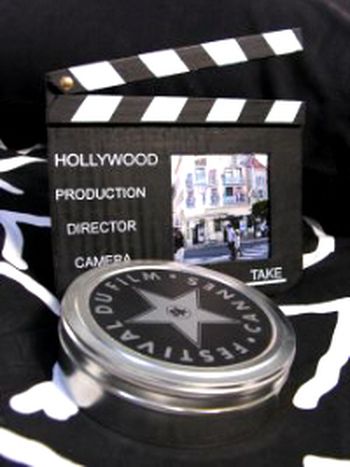
Cinema: Cannes looks east
Published on
Translation by:
 sarah bowskill
sarah bowskill
The 90’s saw a wave Iranian cinema making its mark. This year, Cannes will be filling its cinemas with Eastern European films
The majority of these films have been directed by a new generation of young directors who are bursting onto the European scene. They are full of promise and we will have to follow their careers very closely.
A cinema with a vanguard tradition
Cinema produced in Eastern Europe has been characterised as very intellectual and full of symbols. At the forefront of new trends and thinking, it usually tells stories about society and daily life. Fans will remember the memorable riot scenes on board the Battleship Potemkin, the masterful film by Sergei Eisenstein, which is a reflection on the revolution and, in spite of its tendency to propaganda, established the basis for contemporary cinema. Eastern Europe has greatly evolved since then. However, due to a lack of funding, it is difficult to get these new voices the exposure they warrant.
Looking East
This wave from the East reaches to the very heart of the Festival: the jury of the short film section is presided over by Russian director Andreï Konchalovsky, and is made up of, among others, the Polish composer Zbigniew Preisner. The section Un Certain Regard is another notable example: it is an alternative to the main competition which allows young film makers to show their films for the first time in the official section. This year 22 films from 20 countries will take part and last year the prize went to the Romanian director Cristi Puiu for his third work, The Death of Mr Lazarescu.
This year the Polish Film Zodzysku and the Romanian film The Way I Spent the End of the World are competing for the prize. The Polish entry is among the favourites: a melodrama which tells the story of a nineteen year old young lad who is in love with an illegal immigrant who is also a mother in her thirties. The film reflects “a Poland of contrasts,” says its director, Slawomir Fabicki. “It’s the first time that I’ve worked without a script. I looked for a way to present the scenario with the actors and the camera. If something wasn’t going well or if I looked at my notes and the themes I had intended were not there; we completely changed the scene and the plans. I abandoned some dialogues; I added some things while on set…” The film promises to be an example of a refreshing wave of new creativity.
The new Tsars
Russian cinema will also attract a lot of attention as it is “undergoing a very rapid develoment” according to Renat Davletyarov, head of the section Films from around the world. Israel, Singapore, Switzerland, Venezuela, Tunisia and Chile will accompany Russia in the second year of this initiative which aims to illustrate the diversity of world cinema.
The Russian section will take place on the 19th and 20th of May and there will be four screenings: three will be feature films and a fourth will be dedicated to Russian short films. Although Russian cinema has been important to film from its birth, Davletyarov said that “until recently, there has been a lack of great films in Russian cinema”. This could be the occasion for us to discover auteurs who make a claim to our attention as great as that of Tarkovsky, Eisenstein and Bodrov.
Europe confirms its style
Europe is the main protagonist of this, the 59th festival of Cannes. Established directors such as Almodóvar, Kaurismäki, Loach and Moretti highlight the involvement of the European Commission. Thanks to the EU Media programme, seventeen feature films have been funded by EC money. “Without a doubt we have a considerable harvest” according to the European Commissioner responsible for information, society and media, Viviane Reding. Nonetheless, European cinema is still does not have a global presence ( it has just 12% of the Australian market, 8.3% of the Turkish market, 6.7% of the Russian market and 4.6% of the US market) which shows that although Europe continues to produce quality cinema, it is a long way from meeting the demands of the film market.
Translated from Cine: Cannes enfoca hacia el Este


